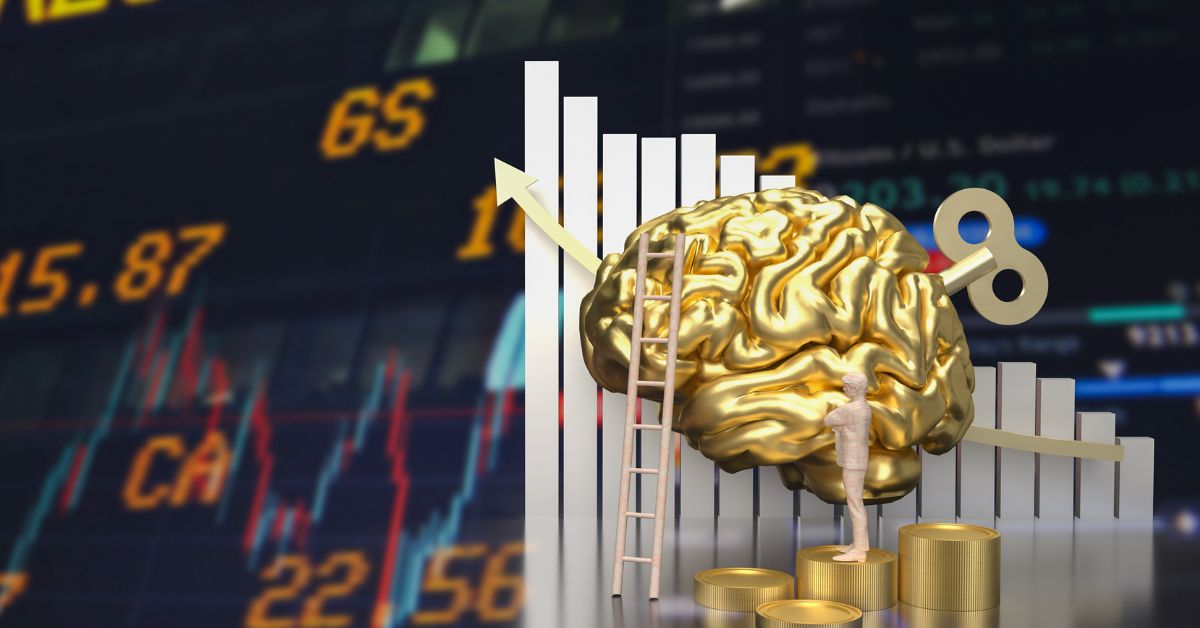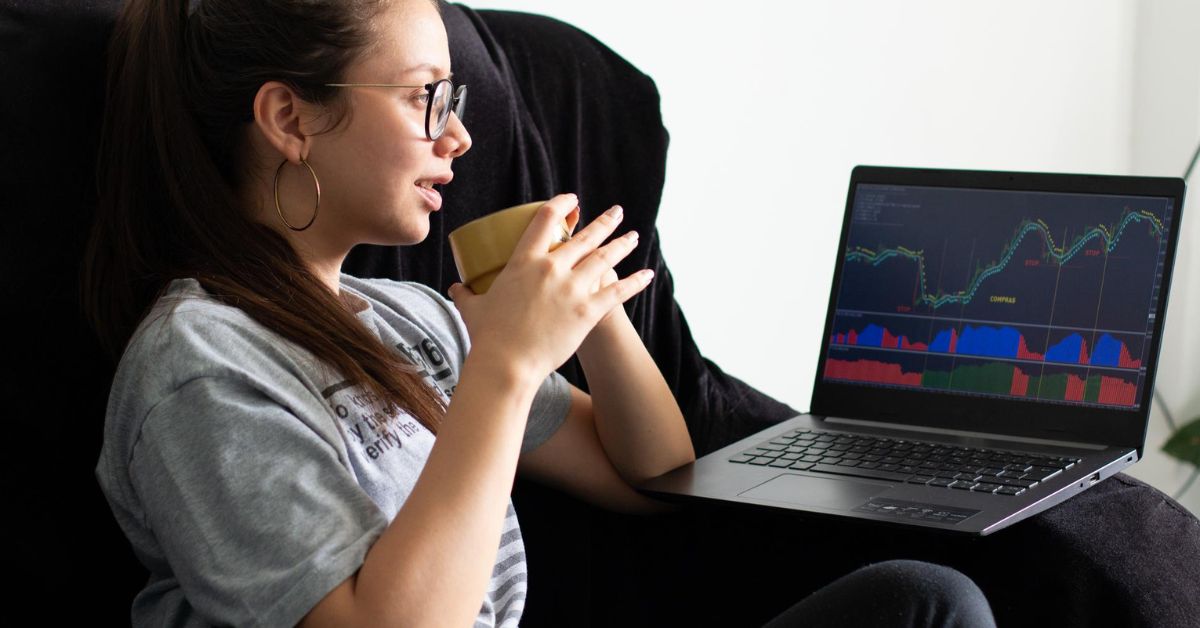It is often thought that trading involves fighting the market, but the real challenge lies within the trader’s mind. Real success depends on managing emotions, maintaining discipline, and making wise decisions under pressure. If you want to thrive in the financial markets, understanding trading psychology is essential. So, what are the trading psychology facts?
You can make a big difference when you use a reliable trading platform like Prime XBT. Prime XBT provides traders with resources and tools to help them navigate the psychological challenges of trading. So, join PrimeXBT today! Use promo code PRIMEOTT to receive a +7% bonus on your deposit.
In this article, we’ll explore the key psychological factors that impact trading performance. We’ll break down what you need to know about mental biases and emotional control. Let’s dive in.
What is Trading Psychology?

Trading psychology refers to the mental and emotional aspects influencing a trader’s decisions. It’s about how you manage emotions during trades. Unlike general psychology, trading psychology focuses on behavior within financial markets. Emotions like fear, greed, and anxiety often drive trading actions. Recognizing these emotions is crucial for consistent success.
Common Psychological Biases in Trading
Traders often fall victim to various psychological biases. One common bias is overconfidence, where traders overestimate their skills and knowledge. Loss aversion is another, where the fear of losing money affects decision-making.
Confirmation bias leads traders to seek information that confirms their beliefs. Anchoring bias occurs when traders rely too much on initial information. Lastly, herding behavior pushes traders to follow the crowd rather than make independent decisions.
The Emotional Cycle of Trading
Traders experience a distinct emotional cycle during trades. It starts with hope when entering a trade with optimism. Fear then sets in as the market moves unfavorably.
Greed can take over when a trade is winning, tempting traders to hold for too long. Finally, regret occurs after a poor decision, impacting future trades. Recognizing this cycle can help traders manage emotions effectively.
Trading Psychology Facts
Trading success depends on understanding the psychological factors that influence decisions. Mental habits, emotions, and biases can all significantly influence a trader’s performance. Here are some key facts that every trader should know to improve their trading psychology.
Emotions Drive Most Trading Decisions
Emotions play a significant role in trading, influencing over 70% of decisions. When emotions like fear, greed, and anxiety take control, rational thinking often takes a back seat.
The emotional influence can lead to impulsive decisions that don’t align with the trader’s plan.
Recognizing when emotions are driving decisions is crucial. Traders who manage their emotions effectively are more likely to make objective, data-driven choices.
Fear of Losses Outweighs Potential Gains
Fear of losing money is a powerful emotion that often outweighs the desire for gains. This fear can cause traders to close winning positions too early or hold onto losing trades for too long, hoping for a turnaround.
The focus on avoiding losses rather than maximizing gains can limit a trader’s overall profitability. Understanding and managing this fear is essential for long-term success in trading.
Overconfidence Can Lead to Big Losses
Overconfidence is a common psychological bias that can lead to significant trading losses. Traders who overestimate their skills or knowledge are more likely to take excessive risks.
These risks often result in significant losses when the market moves against them.
While confidence is necessary, it must be tempered with caution. Successful traders know their limits and avoid overconfidence in their decision-making.
Herding Behavior is Common
Herding behavior is when traders follow the crowd rather than make independent decisions. This behavior is widespread during periods of market uncertainty. While it may seem safer to follow the majority, herding can lead to poor outcomes.
Markets are unpredictable, and following the crowd can result in entering or exiting trades at the wrong time. Independent analysis and decision-making are vital for success.
Mindfulness Improves Trading Performance
Mindfulness is the practice of staying present and aware, which significantly improves trading performance. Traders who practice mindfulness are better equipped to remain calm and focused during volatile market conditions.
This mental clarity allows for more rational decision-making and helps traders avoid reacting impulsively to market movements. Incorporating mindfulness into a trading routine can lead to more consistent and improved results.
Journaling Enhances Trading Skills

Keeping a trading journal is a powerful tool for enhancing trading skills. By documenting each trade, traders can review their decisions and identify patterns in their behavior. This self-awareness is crucial for continuous improvement.
Journalists are more likely to learn from their mistakes and refine their strategies over time. A trading journal is not just a record—it’s a learning tool.
Discipline is the Most Important Trait
Discipline is the foundation of successful trading, and consistently ranking is the most essential trait. Traders who stick to their plan, regardless of market conditions, are more likely to achieve long-term success.
Discipline involves following set rules, managing risk, and avoiding emotional decisions. It is the key to maintaining consistency and avoiding the pitfalls of impulsive trading.
Adaptability Increases Profitability
Adaptability is a critical factor in increasing trading profitability. Markets are constantly changing, and traders who can adjust their strategies accordingly tend to be more successful.
Flexibility allows traders to stay ahead of market trends and capitalize on new opportunities. Being adaptable means not being overly attached to a single approach and being willing to change when necessary.
Regret Can Cloud Future Decisions
Regret over past trading decisions can cloud judgment and impact future trades. Traders who dwell on missed opportunities or losses may hesitate to take action in the future. This hesitation can result in missed opportunities or poor decision-making.
It’s essential to acknowledge regret but not let it dominate future trading decisions. It’s crucial to learn from past mistakes without being paralyzed by them.
Confidence Without Arrogance is Essential
Confidence is essential for successful trading, but it must be balanced with humility. Traders who are too confident can become arrogant, leading to reckless decisions. Confidence should come from knowledge and experience, not from an inflated sense of ability.
Successful traders are confident in their strategies but remain aware of the risks. They balance self-assurance with caution, avoiding unnecessary risks.
Common Psychological Pitfalls and How to Avoid Them

Trading can be emotionally draining, leading to psychological pitfalls that impede success. Knowing how to avoid these pitfalls is crucial. Here are some of the most common mistakes traders make and how to fix them.
Overtrading
Overtrading occurs when traders execute too many trades, often driven by excitement or the desire to make quick profits. It can lead to excessive risk-taking and significant losses.
To avoid overtrading, set strict trading rules and stick to them. Focus on quality trades rather than quantity, and ensure each trade aligns with your strategy.
Revenge Trading
Revenge trading happens when traders try to recover losses by making impulsive trades. It often results in further losses and emotional stress.
The best way to avoid revenge trading is to accept losses as part of trading. Take a break after a loss to clear your mind and avoid making decisions based on emotions.
FOMO (Fear of Missing Out)
FOMO occurs when traders feel compelled to enter a trade because they fear missing out on a potential profit. This can lead to hasty decisions and poor timing. To avoid FOMO, focus on your strategy and ignore market hype.
Remember that there will always be more opportunities, and it’s better to trade based on analysis than on fear.
Holding on to Losing Trades
Traders often hold on to losing trades, hoping the market will turn in their favor. It can result in larger losses over time. You can avoid this pitfall by setting stop-loss orders and adhering to them. Accepting small losses is better than holding on to a losing position that could worsen.
Confirmation Bias
Confirmation bias occurs when traders seek information that supports their existing beliefs while ignoring contradictory evidence. It can lead to misguided trades and missed opportunities.
To avoid confirmation bias, always seek out multiple perspectives before making a decision. Challenge your assumptions and be open to changing your view based on new information.
Lack of Patience
Impatience can cause traders to enter or exit trades prematurely, leading to missed opportunities or unnecessary losses.
To avoid this, develop a clear trading plan and stick to it. Patience is crucial in waiting for the right market conditions before making a move.
Letting Emotions Take Control
Allowing emotions like fear, greed, or frustration to drive trading decisions can be detrimental. Emotional trading often leads to impulsive actions that deviate from your strategy. Consider professional guidance to help you manage your emotions effectively.
Our On Tilt Trading Store offers trading psychology coaching to help you develop emotional discipline and improve your trades. Expert advice and tailored strategies will help you keep your emotions in check and trade more confidently.
Conclusion
Your trading psychology has a tremendous impact on your success. Making rational decisions is easier if you understand and manage your emotions. So, traders need to be aware of psychological factors and disciplined. With the right approach, you can boost your trading performance and reach your financial goals.
But are you tired of panic selling, FOMO, overtrading, and bag holding that leads to losses? We recommend the Vestinda trading app to eliminate emotional decision-making with automated crypto trading strategies. It helps simplify your trading approach and minimizes emotional influences, so you’ll trade more disciplined and effectively.



